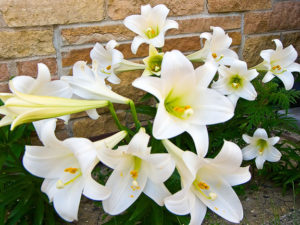by Sarah Scherschligt
Rachel and I sat together at a café on a rainy Seattle morning. I’d flown across the country so that we could spend a couple of precious days together before she had her first child. On the cusp of her transition into motherhood, we felt a bit like Mary and Elizabeth visiting one another. We shared our dreams and hopes and fears and frustrations as we have done countless times over the 18-year stretch of our friendship.
We laugh to recall how our friendship started: our freshman year in college I approached her and said something like: “I think we will be friends.” I was right. We fell into friend-love, became nearly inseparable, and now nearly 20 years later, we both count our friendship as an enduring sign of God’s grace and love in our lives.
Our friendship is precious partly because we both know it could have turned out differently. You see, our friendship fell apart our sophomore year of college.
We spent a year basically not speaking to one another. Thankfully, by our senior year, we grew close again—close enough that when I moved overseas after college, she spent a summer visiting; close enough that we still find ways to visit one another wherever we are. We now talk nearly every day.
Our friendship has waxed and waned with periods of silence and distance, but except for that time in college, we never had acrimony. But oh, during that time…
The dark times
Throughout the years we occasionally mentioned the dark times, but usually only in passing or even as a joke. It wasn’t until we sat together over eggs and coffee that rainy morning in Seattle that we talked openly and directly about what had happened.
We tried to remember exactly what caused us to pull apart. Rachel had transferred away for a semester and when she transferred back the troubles began. I was suffering from the wicked combination of a broken heart and undiagnosed depression. That alone would do it. I was also jealous that she had direction and purpose at a time when I was floundering, trying to figure out what I wanted to do. The very things that I had so admired in her—confidence, an extroversion that made people feel loved, good humor—now seemed threatening. I felt invisible. I lashed out. She only knew that I was angry and felt enormous resentment from me. Neither of us understood what was happening.
As we talked in Seattle, we both shared our feelings without blame. We also both listened without defensiveness.
What happened to pull bring us back together, I asked. She remembered that I wrote her a letter saying that I still cared about her. It meant the world to her. We both recalled what a relief it was that I studied abroad for a semester. We both needed space.
 I remembered a moment in chapel the following spring, right around Easter, where something happened that reconciled us. I don’t remember any details but I do have a hazy memory of sitting in a particular pew and knowing it would be ok between us. Easter has always been a time when we celebrate the resurrection of our friendship.
I remembered a moment in chapel the following spring, right around Easter, where something happened that reconciled us. I don’t remember any details but I do have a hazy memory of sitting in a particular pew and knowing it would be ok between us. Easter has always been a time when we celebrate the resurrection of our friendship.
She remembered that she had been cared for by other friends. Especially important was a pastor/professor who reached out to her. He gave her space to sob and grieve. He also helped her admit that she couldn’t forgive me. He told her something about allowing God to be the one who forgives and to trust that grace could work out our situation. We both remembered with awe and regret a mutual friend who was caught in the middle. She miraculously managed to be a kind friend to each of us without taking sides. We recalled gentleness overall. No pressure to reconcile faster than either of us was ready for. We kept saying the word grace.
Grace and time
As we sat at that café, the final healing of a tear that happened decades ago took place. The grace-filled combination of time and each of us being happy with our own lives allowed us to claim responsibility and to offer forgiveness. We each said that we were so sorry; that we just didn’t know how to navigate all we were feeling then; that we loved each other. We also talked about how the dynamics between us that had caused the conflict were still present in our friendship. They rear their ugly heads at times. Now that we know them, we can care for our friendship much better.
We both agreed that God’s hand was guiding us. There is no way, two kids (one of whom was depressed) caught in the swirl of college with all its pressure and emotions could have pulled our own selves together. God did it and we are both grateful. Obviously, every relationship that experiences a rift is different. From the resurrection of our relationship, I made the following observations. I offer them here with hopes that they could be helpful to you.
Resurrection happens over time (even Jesus needed three days) and is always an act of God. It certainly won’t help if you go about it faster than you or the other person is ready for. Healing takes time and space. Allow both. Rachel and I didn’t know what our relationship would look like after we got resurrected. The resurrection was possible because we allowed it to become whatever it would become.
If a resurrection occurs, a death has also occurred. Grieve it. New life will not come until you acknowledge what has been lost.
At some point, if you cannot find healing within a relationship, you may need to step outside it permanently. I’m thinking here especially of divorce. Even if a relationship is not able to be resurrected, the individuals in the relationship are never outside God’s care. This is counseling rule #1, yet I find it hard to remember. Our resurrection was possible because Rachel claimed her own stuff, including not being able to forgive me. And over time I did the same. Blame does not help. Nor does asking the other person to take responsibility for something they are not ready to claim.
Walk through it at an honest pace. I am ashamed to admit it, but I was probably not ready to fully apologize until that morning at the café. By then, my apology was complete. But in ways verbal and non-verbal, we had been apologizing to each other the whole time. Walk through it at an honest pace, but walk through it. Thankfully, we forgave each other at many turns. When you have been hurt, it can be tempting to withhold forgiveness. The hurt never heals until you forgive and even then, it can still surface. Rachel and I had other friends who helped support us. The time spent with the pastor/professor healed and helped Rachel know she was cared for. Other friends helped me find my place in the world. Our mutual friend was—and still is—a miracle.
Ask God to give you patience, clarity, kindness, and grace.
The Rev. Sarah Scherschligt is the senior pastor of Peace Lutheran Church in Alexandria, Va. When she prioritizes well, she enjoys ultimate Frisbee, pottery and time with her family and friends. Someday, she’ll find the time to blog again at www.thebarefootpastor.blogspot.com
This article originally appeared in the March 2013 issue of Cafe.


Thank you for writing this; it was an encouragement I needed today as I am trying to decide when and how to resurrect a couple of relationships in my life. Thank you for the reminder that this is God’s work, not mine, and it takes time and lots of honesty.
It always amazes the ways that God speaks to me, like through your article. I am going through a similar situation with a friend. We haven’t spoken in 10 years and she just reached out to me by sending an Easter card. I wrote her today and hope that we will get together soon. Thank you!
Friendships and relationships require a great deal of work, love and forgetfulness. I too have been in the middle of this world recently and finally came to the conclusion I was the older brother in the story of the Prodigal Son. I was the one unwilling to move out of the gloom. I was the one not willing to let go and move forward. But with time I did move along. I made a phone call, I sent a card, and I made the connections happen (it’s alot of work and time). I realized that I don’t have to agree with my friends path but I do need to be a support and create a different story of what holds us together. I grieved *my* loss and decided to be saint and sinner (as a pastor reminded me) filled with grace!
Thank you again for a message for reconciliation we can all work at and a reminder of Jesus Easter Story. Be at Peace!